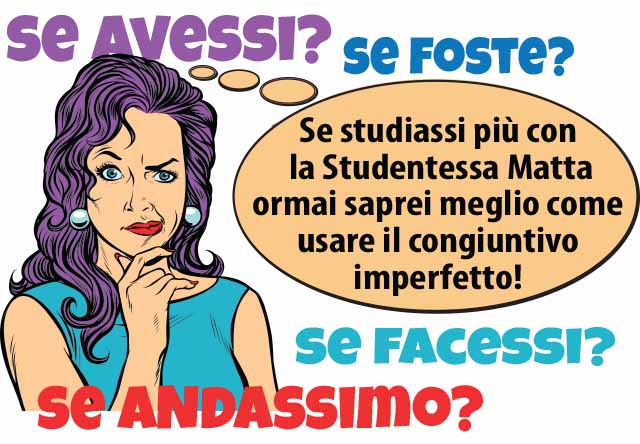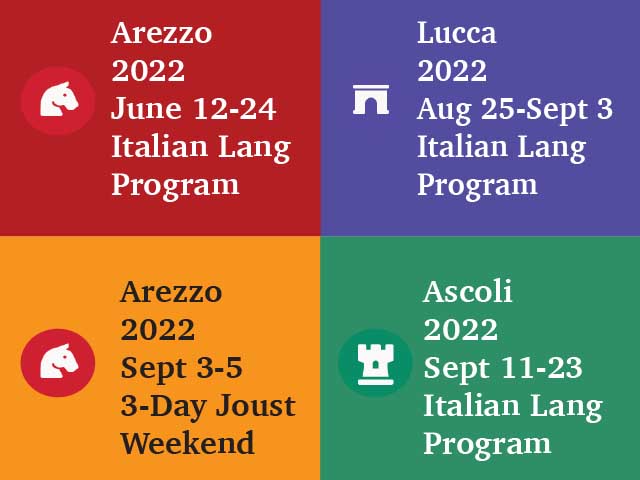
Espressioni italiane utili usando
i verbi FARE, PRENDERE e AVERE
Il modo migliore per imparare gli usi di FARE, PRENDERE, e AVERE è iniziare a pensare come un italiano!
The best way to learn the uses of FARE, PRENDERE, and AVERE is to start thinking like an Italian!
Per la cronaca, questo post è dedicato alla mia studentessa Tonya che mi ha chiesto di compilare un elenco di espressioni comuni utilizzando FARE, PRENDERE, e AVERE prima di partire per l’Italia, dove non vede l’ora di praticare il suo italiano!
For the record, this post is dedicated to my student Tonya who requested I compile a list of common expressions using FARE, PRENDERE, and AVERE before she left for Italy, where she looks forward to practicing her Italian!
Per comunicare efficacemente in italiano, è essenziale comprendere le espressioni idiomatiche, le strutture grammaticali e le sfumature culturali della lingua. Questo significa andare oltre le traduzioni letterali e il pensiero nella lingua che stai imparando piuttosto che tradurre parola per parola dalla tua lingua madre.
To communicate effectively in Italian, it’s essential to understand the language’s idiomatic expressions, grammar structures, and cultural nuances. This means moving beyond literal translations and thinking in the language you are learning rather than just translating word for word from your native language.
È importante padroneggiare il corretto uso di questi verbi per evitare equivoci, comunicare in modo più efficace e suonare più come un parlante italiano nativo.
It is important to master the correct usage of these verbs to avoid misunderstandings, communicate more effectively and sound more like a native Italian speaker.
Take, for example, the verbs FARE, PRENDERE, and AVERE.
FARE means “to do” or “to make”
PRENDERE means “to take” or “to get”
AVERE means “to have”
Abbastanza facile! Comunque, solo una parola di cautela… molte volte, questi verbi sono usati in modi a cui gli anglofoni non sono abituati. Per esempio…
Easy enough! However, just a word of caution… many times, these verbs are used in ways English speakers are not accustomed to. For instance…
An Italian speaker would say, “Faccio colazione (I “make” or “do” breakfast),” whereas an English speaker would say, “I’m having, or I’ll have breakfast.”
In a restaurant, an Italian speaker would say, “Prendo la bistecca alla fiorentina (I take the steak).” In contrast, an English speaker would say: “I will have the Florentine steak.”
An Italian speaker would say, “Ho venti cinque anni (I have 25 years),” but an English speaker would say, “I am twenty-five years old.”

Le traduzioni letterali sono come una buccia di banana scivolosa sul percorso di uno studente di lingua per fluidità! Pensala così: tradurre parola per parola dalla tua lingua madre è come cercare di inserire un piolo quadrato in un buco rotondo. Non ci riesco proprio! È necessario imparare la forma unica e lo stile della lingua che si sta imparando, così come è necessario trovare la giusta forma e la dimensione del pezzo del puzzle per completare l’immagine.
Literal translations are like a slippery banana peel on a language learner’s path to fluency! Think of it like this: translating word for word from your native language is like trying to fit a square peg into a round hole. It just doesn’t work! You need to learn the unique shape and style of the language you’re learning, just like you need to find the right shape and size of the puzzle piece to complete the picture.
Ho compilato una lista di espressioni che usano FARE, PRENDERE e AVERE per guidarti. Studiarla per familiarizzarti con gli usi particolari e dai un’occhiata ad alcuni idiomi che utilizzano questi verbi. Inizia a leggere e ad ascoltare; presto, il tuo orecchio riconoscere queste espressioni più spesso e usarle diventerà più naturali. E ehi, se scivoli su una “buccia di banana” grammaticale, ricorda che l’apprendimento delle lingue è un viaggio, quindi tirati su e vai sempre in avanti!
I’ve compiled a list of expressions using FARE, PRENDERE, and AVERE to guide you. Look it over, familiarize yourself with the particular usages, and check out some idiomatic expressions using these verbs. Start reading and listening; soon, your ear will recognize these expressions, which will start sounding more natural. And hey, if you slip on a grammatical “banana peel,” remember language learning is a journey, so just pick yourself up and keep going!

Let’s start with the verb FARE. It is one of the most versatile verbs in the Italian language, meaning “to make” or “to do.”
Fare l’albero = decorate Christmas tree
Fare i compiti = do homework
Fare la fila/coda = to wait in line
Fare la spesa = to do the shopping
Fare un domanda = to ask a question
Fare una fotografia = to take a photo
Fare il biglietto = to buy a ticket
Fare colazione = to have breakfast
Fare un viaggio = to go on a trip
Fare la valigia = to pack a suitcase
Fare di tutto = to do everything possible
Fare fingere = to pretend
Fare festa = to have fun, party it up
Fare soldi = to get rich
Fare una pausa = to take a break
Fare una passeggiata = to take a walk
Fare vedere = to point something out
Fare un capello in quattro = split hairs
Fare del proprio meglio = do one’s best
Fare alla romana = to split the check
Fare il pieno = to fill up the gas tank
Fare passare = to let through
Fare male = to be painful, to ache
Fare castelli in aria = to daydream
Fare pace = to make peace
Fare soldi = to become rich
Fa bel tempo = To be nice outside
Fa brutto tempo = To have bad weather
When FARE is reflexive: FARSI
The Italian verb “farsi” means: to become, to grow into, fix, or prepare for oneself.
Farsi la barba = to shave
Farsi degli amici =to make friends
Farsi un livido = to bruise yourself
Farsi coraggio = to take heart
Farsi male = to hurt yourself

Next up is the verb PRENDERE. It can be translated as “to take,” “to bring,” “to pick up,” “to get,” “to buy,” or “to order food in a restaurant.”
Pendere una decisione = to decide
Prendere un caffè = order a coffee
Prendere un vestito = to buy a dress
Prendere la macchina = to go by car
Prendere un’appuntamento = make a date or an appointment
Prendere per mano = take by hand
Prendere sole = to sun bath
Prendere il vino = grab the wine
Prendere qualcuno = pick someone up
Prendere appunti = to take notes
Prendere il treno = to catch the train
PRENDERE VS. PORTARE
(Both mean to bring or take.)
Note the difference between two similar verbs, “PRENDERE” and “PORTARE” — Both mean to bring or take. However, the verb “prendere” signifies taking something “away,” while the verb “portare” implies taking something “to” a place. For instance:
Prendo gli amici dall’aeroporto. = I’m picking up my friends from the airport.
Porto gli amici all’aeroporto. = I’m taking my friends to the airport.
When PRENDERE is reflexive: PRENDERSI
Prendersi un raffreddore = Catch a cold
Prendersi cura di = to take care of
PRENDERE can be used to describe being overcome with emotion
Sono stata presa da gioia quando sei venuta alla festa e mi hai chiesto di ballare.
Sono preso da lui. (Sono innamorato di lui. I am taken with him)
Prendersela (pronominal verb — “Prendere + se + la”) =
when you are angered or offended, or blame someone
Me la sono presa quando tu non mi ha telefonato ieri sera.
Idiomatic uses of Prendere
Prendersi in giro = to make fun of someone, to tease (literally spinning someone around)
Prendere per il naso = to say someone cheated someone else out of something or someone was making fun of someone else.
Prendere con filosofia = not to get angry when something annoying happens
Prendere per i capelli = to save someone from a difficult situation
Prendere con le pinze = Take something with a grain of salt, don’t believe immediately what you hear
Prendere la palla al balzo = seize the opportunity
Prendere per la gola = win somebody over by cooking a good meal for them

Last but not least, Italian expressions with the verb AVERE
The AVERE verb in Italian means “to have.” Easy enough! But in Italian, many idiomatic uses of the verb AVERE don’t correspond directly to the English language. Whereas an English speaker would use the verb “to be” (the essere verb in Italian), the Italian speaker would use the verb “AVERE”
Avere fame = to be hungry
Ho fame. = An English speaker would say, “I am hungry.” But an Italian speaker expresses this concept using the “avere” verb ——> “I have hunger.”
Avere sete = to be thirsty
Hai sete? = An English speaker would say, “Are you thirsty.” But an Italian speaker expresses this concept using the “avere” verb ——> “Do you have thirst.”
Common uses of the verb AVERE
Avere fretta = to be in a hurry
Avere voglia di = to want, to feel like
Avere sonno = to be sleepy
Avere paura di = to be scared of
Avere bisogno di = to need
Avere caldo = to be hot
Avere anni = to express your age
Avere freddo = to be cold
Avere intenzione di = to intend to
Avere vergogna = to feel ashamed
Avere ragione = to be right
Avere torta = to be wrong
Avere senso = to make sense
Avere la pelle d’oca = goosebumps
Other Avere Idioms
Avere le braccine corte (literally: to have short arms) = to be cheap, stingy (because your arms are too short to reach into your pocket for your wallet.
Non avere peli sulla lingua (literally: not to have hair on your tongue) = not to mince words)
Avere molto sale in zucca (literally: to have lots of salt in your pumpkin) = to be smart, have common sense.
Avere gli occhi più grandi dello stomaco (literally: to have eyes bigger than your stomach) = to take too much to eat and not be able to finish it.
Avere un cervello di gallina (literally: to have a hen’s brain) = to not be very intelligent.
Avere il dente avvelenato (literally: to have a poisonous tooth) = to be full of resentment, hold a grudge
Avere culo (literally: to have ass) = to be lucky.
Avere un piede nella fossa (literally: to have one foot in the grave) = on the verge of death.
Avere la botte piena e la moglie ubriaca (literally: to have a full barrel of wine and a drunken wife) = to have your cake and eat it too.
Avere le mani in pasta (literally: to have your hands in the dough) = to be involved in something, in the know.
Avere le mani d’oro (literally: to have golden hands) = to be gifted in doing something.
Avere le fette di salame sugli occhi: (literally: to have your eyes covered with slices of salami) = not seeing the obvious.
Avere un chiodo fisso in testa: (literally: to have a nail driven into your head) = to be obsessed with something
Avere le mani bucate: (literally: to have holes in your hands = to be a big spender.
Avere le mani legate: (literally: to have your hands tied) = forced to act a certain way.
Ha senso? Make sense?
Remember, in Italian, “Avere senso” means “to make sense, or something is reasonable.”
An English speaker might be inclined, however, to form the thought of “making sense” using the fare verb “FARE” — “Fare senso.”
Attenzione!!! “Fare senso!” in Italian means something is gross or disgusting!!!
“Qualcosa puzza! Fa senso!”













THIS IS A fantastic post!